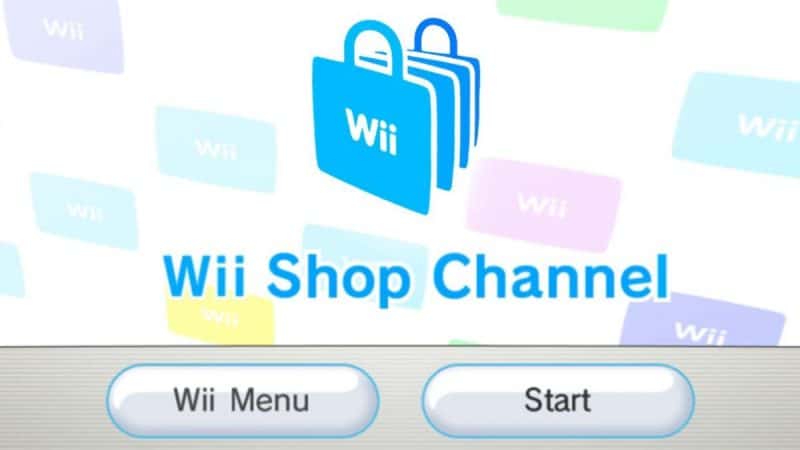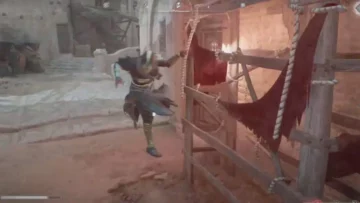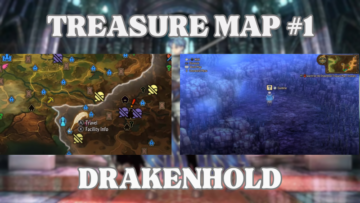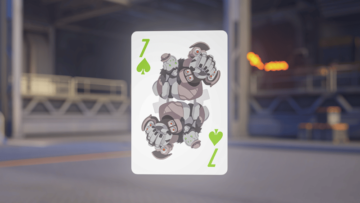ESTNN’s Lahftel takes a closer look at the Ubisoft server shutdowns, and what they mean for the gaming space as a whole.
Around June 2, the internet did an internet thing and got collectively mad at Ubisoft for shutting down online services for 15 titles. Sparking that weird reaction from the general gaming space that was interesting and hilarious to shift through. Because it baffles me that not many people seem to be aware of what the issue is.
At this point, I wonder how anyone can be surprised that Ubisoft and other big companies are taking away access to multiplayer and DLC activated by servers. Because as companies, they have to make money. And seriously, what reason would they have to keep servers live that only cost them money? It is a economic business decision, it’s worth understanding those servers require regular maintenance, personal to do said maintenance and costs lots of money on a monthly basis.
But video game social media did what video game social media does, getting mad over an issue that they don’t fully understand. I mean yeah, if I read that some game I bought but haven’t played yet gets shut down, I’d get mad too. But for once, Ubisoft isn’t completely at fault here. And this was by far not the first time this happened, even recently.
Again, kind of a dick move by Ubisoft but can you really expect them to keep running a service that gets probably used a few times a month? Nah. What you can fault Ubisoft and pretty much everyone else for, is the fact that these games have never been future proofed — which gives way to a larger issue we’ll get into in just a moment. The underlying evil here is not greedy game publishers deciding their work isn’t worth preserving anymore. It is the issue that games aren’t made to last under the guise of copyright protection.
Online Storefronts created an Issue
[embedded content]
Now first and foremost, I want to give credit to Ross Scott from Accursed Farms who has been reporting on this issue for quite while now in his Dead Game News format. And his most recent video on the subject is more or less the jumping off point for this piece.
Preserving media is how we preserve the past
The preservation of media is very important, the preservation of everything is. Its how we’re able to learn from past successes and mistakes and is an integral part of how humanity developed. (Don’t worry, this has a point.) In the past few years, the idea of Remakes has made waves in the industry. Be it just putting fancy new graphics on an old classic or scrubbing it of the mistakes of the past. And in this whole discussion, I get the feeling the importance of that preservation and how a work was released gets often ignored.
We like to remember the past flawlessly, and these remakes are often made with that in mind. But past flaws are important and while the pursuit of perfection is admirable, we slowly remove the kinks and rough spots that offer us some of the valuable insights. Yes, this is also about The Last of Us Part 1 now. I don’t think its wrong for Naughty Dog to bring up their landmark title to a modern standard; it will be an issue if they’ll make the original which is only available on a now defunct console unavailable. Yes, there is the Remastered version of the game for the PlayStation 4, but what if you can’t buy that one anymore either?
The PlayStation 4 and its online storefront will vanish, like the PlayStation 3 storefront did. And just think about that, all those PlayStation 3 games you can’t buy anymore PlayStation Network because Sony hasn’t made any effort to make them available after the fact. How long till I can’t even download them anymore because Sony deems the service to be unworthy to be kept alive? in the future. The same thing happened to the older Nintendo stores as well, while you can still download games for the Wii, WiiU, DSi and 3DS, you can no longer buy them digitally. How long till those won’t be available anymore?
Emulation would be the more reasonable approach, but that requires me to make a digital copy of my PlayStation 3 hard drive. And while I can do that, because I’m a massive nerd. I assure you that a good number of people reading this can not.
Some credit goes to Microsoft for at least making an effort to preserve older games on their new platforms. And thankfully, Sony’s new service is taking steps in the right direction and so is Nintendo. But through curated re-releases of those older titles, we’re slowly losing more and more of them.
Game Piracy wrong, but soon it’ll be the only choice
And under the guise of copyright protection, games need to communicate to servers to validate their components like DLC or even leader boards. Sometimes even save states. I love the new Hitman games, they are probably the peak of the immersive sim and stealth genre. But there is this biting sting that comes with them; your save file is linked to their servers. If you play offline, you won’t be able to access all your unlockables. For now that’s only really an issue if the servers are down or you don’t have an internet connection. But think about this in 20 years, do you think that those servers will still be up by then?
Do you believe that whoever will own IO interactive by then cares about keeping the title alive and preserved? And who knows, maybe they’ll make good on their promises and update the game once the servers go down. But who can assure you that that’s the case?
The worst thing about all of this is, we make sacrifices of longevity and preservation of video games under the assumption that they prevent online piracy. And there have been some odd takes about this issue providing a moral reason for why piracy the right choice if you like games. And it’s kind of hard to disagree if you’re pitting the idea of being able to play games at all against not being able to access what you bought with your own money.
Not a problem of the past
It’s also worth remembering this isn’t a problem we used to have. We didn’t live in a world with games checking into servers to verify their data or online modes that require a central server to work. Even without an online store, I can still set up a multiplayer round for a game like Age of Empires 2. All that requires is me hosting a match and my friends typing in an IP address.
But with modern comforts like matchmaking — born out of necessity after consoles entered the online multiplayer realm — we have to make some sacrifices. Some that will inevitably lead to some of your favorite games being shut down and never preserved. Yes, I’m still mad that I can’t play Metal Gear Online 1 and 2 anymore in any legal way. At least some heroes on the internet have managed to make MGO2 playable with emulation.
And when I see some of my more esteemed colleagues argue that 10 years is enough time to experience a title and its online mode. Then I start questioning my own sanity really. How can you be against preserving games? Even something like Rockstar pulling the old GTA games off Steam, or Blizzard making the old WarCraft 3 unavailable on battlenet shows a very dangerous precedent. That games are throw away media, only to be consumed around the time of their release.
Sooner or later, all the current classics of gaming will be unavailable in the shape or form they were released in. Patch culture pretty much set the standard that its totally fine to ship a game broken, as long as you can patch it day one. Or in some cases, patches can make it even worse. (Like how the PC launch version Elden Ring released with introduced a number of technical and performance issues that the review copies didn’t include.)
I don’t want to be all doom and gloom about it, but it didn’t used to be like that. And that could very well be because games didn’t used to be as technically complex as they are now.
But on the other end of the spectrum, even if GOG is a service that will one day go away. I can download game installers from there that often don’t require any type of DRM software to use after the fact. And the only worry I have when downloading older titles, is if they’re gonna work on my PC without anymore tinkering required. It baffles me that this not a bigger issue to most gamers, but it also doesn’t surprise me at all because no one cares if they’ll be able to play Fortnite with all those expensive skins they bought 20 years down the road.

There should be more effort to preserve Games
So, what can we do about the fact that everything you love right now in gaming will sooner or later be unavailable? Either because you can’t repair that old console you bought a disc for or thanks to anti piracy measures. Rethink the whole system. Valve founder Gabe Newell said a long, long time ago that piracy is always a service issue. Which is true to a degree, but even on Steam you don’t actually own the games you buy.
And I do understand that this issue goes far deeper than just evil game makers being lazy, or trying to prevent their work from being stolen. But it is a problem that the consumer and the industry shouldn’t ignore. And I don’t think its that wrong to go back to the good old days of CD-Keys or these cool code wheels Monkey Island had.
But how does that work in an industry like it does today? Especially with all the platform and storefront exclusivity, because for some banal reason we’ve decided that making games accessible through limited means is really what drives this industry forward.
I’ve always thought that criticising something would also mean I’d have to propose a solution. But this is one of those issues were I feel way out of my field. Because no solution I can come up with is economically viable for the companies that have to service their games, while also protecting their property. Its not even that I pay lots of money to be able to download a game until a service shuts down. But think of all the games lost to time only surviving on old hard drives, all the online games no one can play anymore.
So what do we do from here on out? I don’t think this is an issue we can sit on and there’s got to be some solution out there. Maybe me shouting this out into the void might at least spark some kind of debate, or maybe someone with a bigger platform can turn this rambling into something more cohesive. But expect there to be a follow up piece to this, I’ll try and “do some journalism” and see if I can get some answers from some of the bigger publishers.
For more esports and gaming news, visit us here at ESTNN.
- amazon prime gaming
- axie infinity
- Casino Games
- coin genius
- EA Sports
- esports
- Esports News Network
- Evil Geniuses
- Gaming
- gaming headset
- gaming pc
- General
- madden nfl
- Nintendo
- Online casino games
- pc games
- plato
- plato ai
- plato data intelligence
- plato game
- plato gaming
- platodata
- platogaming
- playstation
- prime gaming
- Team SoloMid
- xbox











